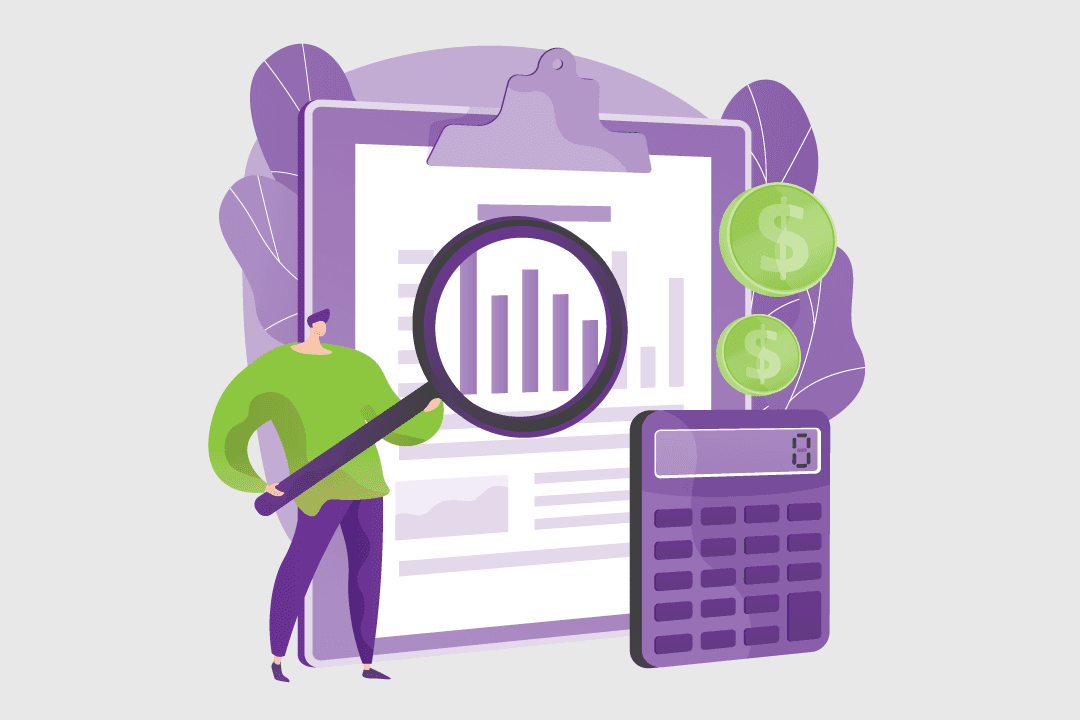Tasks and responsibilities for a bookkeeper
Bookkeeper roles and responsibilities can vary, and they can work for businesses of many sizes and in many industries. Bookkeepers may work directly for one company, within an accounting agency, or as a sole trader.
So, what does a bookkeeper do? A bookkeeper’s duties can include:
- Processing and recording payments, invoices and receipts into accounting software or spreadsheets
- Preparing wages
- Managing expenses
- Reporting financial discrepancies
- Reconciling account transitions
- Preparing for yearly tax returns
- Preparing financial statements and reports
- Preparing BAS statements
- Managing GST
How to become a bookkeeper
-
Study
To gain the skills and knowledge you need to work confidently as a certified bookkeeper and gain the qualification you need to provide BAS services, complete a Certificate IV Accounting and Bookkeeping (FNS40217) or a Diploma of Accounting (FNS50217).
-
Complete work experience
To provide BAS services autonomously or as a sole trader, 1,400 hours of work experience must be completed under a registered BAS agent within four years of your registration.
-
Register with the Tax Practitioner Boards
Apply for your BAS agent registration through the Tax Practitioners Board.
Pathway options
The skills you develop as a bookkeeper are needed in all businesses to some degree, and bookkeeping is a role that can either be long term or be a stepping stone into other positions.
Some career path options for a bookkeeper could be:
Junior
-
Accounts assistant
Most common qualification: Diploma of Accounting (FNS50217)
Mid
-
Accounts administrator
Most common qualification: Certificate III in Accounts Administration (FNS30317)
-
Bookkeeper
Most common qualification: Certificate IV in Accounting and Bookkeeping (FNS40217)
-
Payroll officer
Most common qualification: Diploma of Payroll Services (FNS50417)
Senior
-
Accountant
Most common qualification: Bachelor of Accounting
-
Accounting manager
Most common qualification: Advanced Diploma of Accounting (FNS60217)
-
Auditor
Most common qualification: Bachelor of Accounting
-
Chief financial officer (CFO)
Most common qualification: Master of Business Administration (MBA)
-
Tax accountant
Most common qualification: Bachelor of Accounting
Explore related qualifications
Studying a course through a TAFE or RTO (registered training organisation) ensures you have the essential knowledge for a role as a bookkeeper and show future employers you have taken the initiative to gain the skills you need.
Certificate IV in Accounting
The Cert IV in Accounting and Bookkeeping provides the skills and knowledge to provide the fundamental bookkeeping skills needed to work in a business under the supervision of senior bookkeepers.
*At this time, this course, combined with the mandatory 1400 hours of work experience, can prepare a bookkeeper to work as a sole trader or start their own business that can offer paid BAS services.
The average duration for this course is one year, either full-time or part-time and can be studied online or on campus.
This course is eligible for JobTrainer funding which may cover all or part of the course fees for learners that meet the requirements.
5 providers offer this course





Diploma of Payroll Services
This course covers everything you need to know to perform payroll administration and payroll management tasks in various industries. It includes establishing payroll systems, preparing salary packaging arrangements, processing superannuation payments, processing employee terminations and much more.
The average course duration is 18 months and can be studied either full-time or part-time. Online learning is available with self-paced study modes.
*At this time, this course, combined with the mandatory 1400 hours of work experience, can prepare the learner to register with the Tax Practitioner Board and provide paid BAS services.
1 providers offer this course

Diploma of Accounting
A Diploma of Accounting qualification prepares those who wish to provide financial services like accounts receivable, accounts payable, tax services and other complex accounting duties. At this level, responsibilities can be coordinated and self-evaluated.
The average duration of this course is one year. This course can be completed online or in a classroom environment and can be studied part-time or full-time in self-paced study modes.
This course is eligible for JobTrainer funding which may cover all or part of the course fees for learners that meet the requirements.
*This qualification is an approved Tax Practitioner Board (TPB) course and can lead to registration as a tax agent. Learners who wish to register with the TPB should check current registration requirements as registration requirements are reviewed regularly.
1 providers offer this course

Related subjects
Jobs that have you helping other businesses with their financial transactions are a-plenty. With your innate organisational skills, you may find different positions more suited to you.
Here are a few ideas:
Related articles
If you have decided that a career in bookkeeping is just right for you, you can access a vast selection of resources, articles, interviews and tips to help you on your way.
You can start here:
Reviews
Reviews are from Australian workers with this job title or a very closely related one.
Is this your job title?
Share your thoughts and help people decide if this job is right for them.
- All
- Positive
- Negative
Abbey
Nov 05 2021A diverse role that keeps you stimulated.
What are the best parts of the job?
A diverse role where you are always achieving outcomes and keeping stimulated. Most places have very structured responsibilities, so you have complete control over your daily schedule and can work towards ensuring minimal interruptions to get everything completed on time.
What's the most challenging part?
Reconciling amounts and fixing errors, assisting the accountant with necessary adjustments.
Lin
Nov 04 2021Great opportunity to run your own bookkeeping business.
What are the best parts of the job?
Once you become a BAS agent with the Tax Practitioners Board, commit to annual CPD and pass your annual registration process, you can then work for yourself and set up your own business.
What's the most challenging part?
Keeping up with new technologies can be a challenge when you're working for yourself.
Elizabeth
Nov 03 2021Bookkeeping requires passion and empathy.
What are the best parts of the job?
A passion for bookkeeping will make it an extremely rewarding career. The people you work with are generally really easy going, and your work is recognised wherever you go. A career that makes a difference.
What's the most challenging part?
Difficult clients that make it hard for you to advocate for them.

























